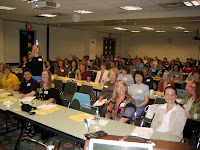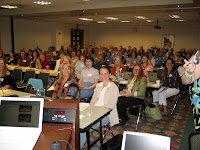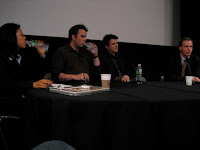
gone gallery
teaching and learning in a city called san francisco
Charles R. Acland, Residual Media (University of Minnesota Press, 2007)
Mark Amerika, META/DATA: A Digital Poetics (MIT Press, 2007)
Jerome Armstrong and Markos Moulitsas, Crashing the Gate: Netroots, Grassroots, and the Rise of People-Powered Politics (Chelsea Green, 2006)
Chris Atton, An Alternative Internet (Columbia University Press, 2005)
Michael D. Ayers (Editor), Cybersounds: Essays On Virtual Music Culture (Peter Lang Publishing, 2006)
Axel Bruns, Gatewatching: Collaborative Online News Production (Peter Lang Publishing, 2005)
Axel Bruns and Joanne Jacobs (Editors), Uses of Blogs (Peter Lang Publishing, 2006)
Manuel Castells, Mireia Fernandez-Ardevol, Jack Linchuan Qiu, and Araba Sey, Mobile Communication and Society: A Global Perspective (MIT Press, 2006)
Annmarie Chandler and Norie Neumark, At a Distance: Precursors to Art and Activism on the Internet (MIT Press, 2006)
Roy Christopher (Editor), Follow for Now: Interviews with Friends and Heroes (Well-Red Bear, 2007)
Wendy Hui Kyong Chun, Control and Freedom: Power and Paranoia in the Age of Fiber Optics (MIT Press, 2006)
Andy Clarke and Grethe Mitchell (Editors), Videogames and Art (Intellect, 2007)
Mia Consalvo, Nancy Baym, Jeremy Hunsinger, Klaus Bruhn Jensen, John Logie, Monica Murero, and Leslie Regan Shade (Editors), Internet Research Annual: Selected Papers from the Association of Internet Researchers Conferences 2000-2002 (Peter Lang Publishing, 2004)
Steve Dixon, Digital Performance: A History of New Media in Theater, Dance, Performance Art, and Installation (MIT Press, 2007)
Timothy Druckrey (Editor), Ars Electronica: Facing the Future: A Survey of Two Decades (MIT Press, 1999)
Kathleen Fitzpatrick, The Anxiety of Obsolescence: The American Novel in the Age of Television (Vanderbilt University Press, 2006)
Patrice Flichy, The Internet Imaginaire (MIT Press, 2007)
Kirsten Foot and Steven M. Schneider, Web Campaigning (MIT Press, 2006)
Anne Friedberg, The Virtual Window: From Alberti to Microsoft (MIT Press, 2006)
Ted Friedman, Electric Dreams: Computers in American Culture (New York University Press, 2005)
Alexander R. Galloway, Gaming: Essays On Algorithmic Culture (University of Minnesota Press, 2006)
Alexander R. Galloway, Protocol: How Control Exists after Decentralization (MIT Press, 2006)
Rishab Aiyer Ghosh, CODE: Collaborative Ownership and the Digital Economy (MIT Press, 2005)
Tarleton Gillespie, Wired Shut: Copyright and the Shape of Digital Culture (MIT Press, 2007)
Lisa Gitelman, Always Already New: Media, History, and the Data of Culture (MIT Press, 2006)
Ken Goldberg (Editor), The Robot in the Garden: Telerobotics and Telepistemology in the Age of the Internet (MIT Press, 2001)
N. Katherine Hayles, Nick Montfort, Scott Rettberg, and Stephanie Strickland (Editors), Electronic Literature Collection, Volume 1 (Electronic Literature Organization, 2006)
Ken Hillis, Michael Petit, and Nathan Scott Epley (Editors), Everyday eBay: Culture, Collecting, and Desire (Routledge, 2006)
Henry Jenkins, Convergence Culture: Where Old and New Media Collide (New York University Press, 2006)
Caroline A. Jones, Sensorium: Embodied Experience, Technology, and Contemporary Art (MIT Press, 2006)
David Joselit, Feedback: Television against Democracy (MIT Press, 2007)
Yehuda E. Kalay, Architecture's New Media: Principles, Theories, and Methods of Computer-Aided Design (MIT Press, 2004)
James E. Katz and Ronald E. Rice, Social Consequences of Internet Use: Access, Involvement, and Interaction (MIT Press, 2002)
Lori Kendall, Hanging Out in the Virtual Pub: Masculinities and Relationships Online (University of California Press, 2002)
Martin Kevorkian, Color Monitors: The Black Face of Technology in America (Cornell University Press, 2006)
Randy Kluver, Nicholas Jankowski, Kirsten Foot, and Steven Schneider (Editors), The Internet and National Elections: A Comparative Study of Web Campaigning (Routledge, 2007)
Petra Kuppers, Disability and Contemporary Performance: Bodies on Edge (Routledge, 2003)
Geert Lovink, Dark Fiber: Tracking Critical Internet Culture (MIT Press, 2003)
Peter Lunenfeld (Author) and Mieke Gerritzen (Designer), User: InfoTechnoDemo (MIT Press, 2005)
Milton L. Mueller, Ruling the Root: Internet Governance and the Taming of Cyberspace (MIT Press, 2004)
Ned Rossiter, Organized Networks: Media Theory, Creative Labour, New Institutions (NAi Publishers, 2007)
Nicholas Ruiz III, The Metaphysics of Capital (Intertheory, 2006)
Fred Turner, From Counterculture to Cyberculture: Stewart Brand, the Whole Earth Network, and the Rise of Digital Utopianism (University of Chicago Press, 2006)
McKenzie Wark, Gamer Theory (Harvard University Press, 2007)
David Weinberger, Everything Is Miscellaneous: The Power of the New Digital Disorder (Times Books, 2007)
Darren Wershler-Henry, The Iron Whim: A Fragmented History of Typewriting (Cornell University Press, 2007)
Michele White, The Body and the Screen: Theories of Internet Spectatorship (MIT Press, 2006)
Monica T. Whitty, Andrea J. Baker and James A. Inman (Editors), Online Matchmaking (Palgrave, 2007)
Monica T. Whitty and Adrian N. Carr, Cyberspace Romance: The Psychology of Online Relationships (Palgrave Macmillan, 2006)
Michele A. Willson, Technically Together: Rethinking Community Within Techno-society (Peter Lang Publishing, 2006)

 earlier in the year, many people, including me, reported the tragic end of arthur magazine.
earlier in the year, many people, including me, reported the tragic end of arthur magazine.















 the first day ended with the second plenary, collaboration and collective intelligence (mp3), featuring mimi ito, cory ondrejka, and trebor scholz. all three speakers were excellent. trebor's talk offered a very articulate and very necessary critical edge, raising issues like - gasp! - labor and capital and consumerism and corporations. trebor stopped short of critiquing consumer capitalism, which seemed odd, but it was nice to get concepts of commodification on the table. great plenary.
the first day ended with the second plenary, collaboration and collective intelligence (mp3), featuring mimi ito, cory ondrejka, and trebor scholz. all three speakers were excellent. trebor's talk offered a very articulate and very necessary critical edge, raising issues like - gasp! - labor and capital and consumerism and corporations. trebor stopped short of critiquing consumer capitalism, which seemed odd, but it was nice to get concepts of commodification on the table. great plenary.



www.flickr.com
|